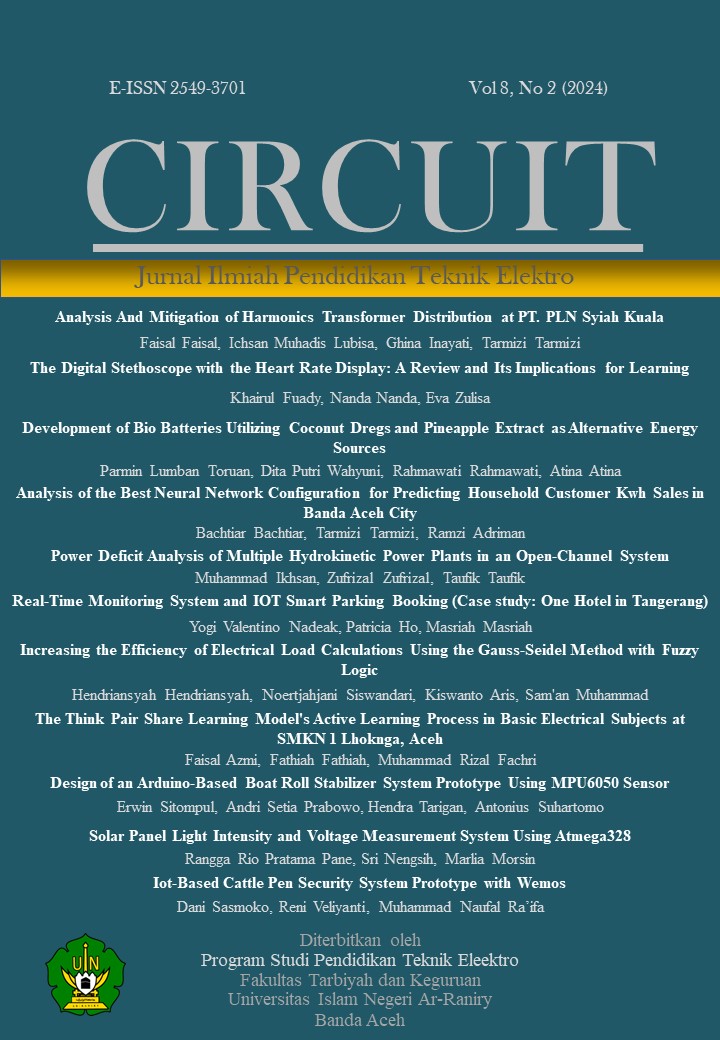Increasing the Efficiency of Electrical Load Calculations Using the Gauss-Seidel Method with Fuzzy Logic
DOI:
https://doi.org/10.22373/crc.v8i2.24729Keywords:
Electricity, Gauss, Seidel, fuzzy, efficiencyAbstract
Improving the accuracy of electric load calculations is a significant task in power system analysis, particularly when dealing with fluctuating loads. Despite its simplicity, the Gauss-Seidel method has historically had trouble handling rapidly changing loads. This paper introduces a novel hybrid approach that increases load computation accuracy and efficiency by fusing fuzzy logic with the Gauss-Seidel method. Fuzzy logic is used in this method to forecast load changes based on previous and present data, which makes load adjustments more precise and faster. The results demonstrate how much better this hybrid technique is than the conventional ones, with accuracy rising from 60% to 84% and efficiency rising by 35%. This makes it an excellent choice for contemporary power systems
Downloads
Published
Issue
Section
License
Authors who publish in CIRCUIT: Jurnal Ilmiah Pendidikan Teknik Elektro agree to the following terms:
- Authors retain copyright and grant the journal right of first publication with the work licensed under a Creative Commons Attribution-ShareAlike 4.0 International License (CC BY-SA 4.0) that allows others to share and adapt the work with an acknowledgement of the authorship and initial publication in this journal
- Authors are able to enter into separate, additional contractual arrangements for the non-exclusive distribution of the journal's published version of the work (e.g., post it to an institutional repository or publish it in a book), with an acknowledgment of its initial publication in this journal.
- Authors are permitted and encouraged to post their work online (e.g., in institutional repositories or on their website) prior to and during the submission process, as it can lead to productive exchanges, as well as earlier and greater citation of published work. (See The Effect of Open Acces)

